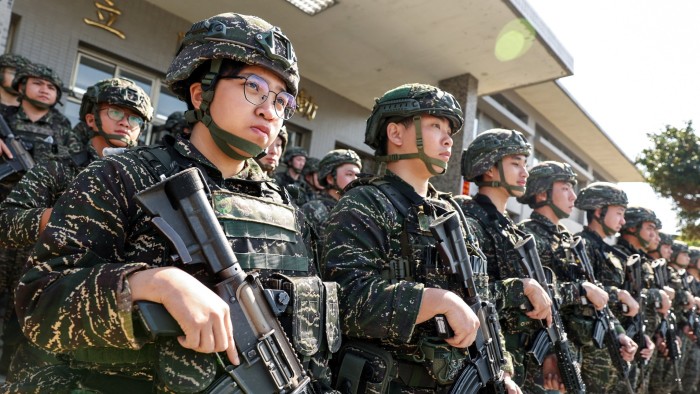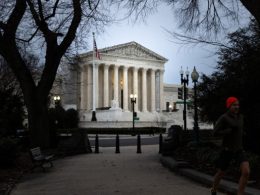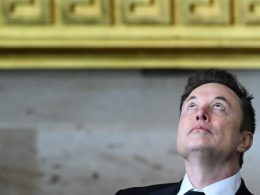Unlock the Editor’s Digest for free
Roula Khalaf, Editor of the FT, selects her favourite stories in this weekly newsletter.
Taiwan has held the first realistic and comprehensive civil defence drill in its democratic era as the country seeks to convince a sceptical US of its commitment to strengthening itself against what both see as a growing threat from China.
The government of the southern city of Tainan on Thursday mobilised firefighters, medical personnel, civil society relief groups and non-military conscripts to practice evacuation and emergency treatment of mass casualties.
The drill simulated an explosion of unknown cause in a port just as an earthquake and tsunami hit and required authorities and civil society to respond without help from the military — a scenario that would only occur in wartime.
“If the military needs to fight, it will not be able to support [disaster response], so the civilian sector needs to be able to do it on their own,” said a senior government official.
The exercise, the most comprehensive of its kind since the end of authoritarian government in Taiwan in the 1990s, is part of a push by President Lai Ching-te to make the country more resilient against China by toughening civil defence and boosting the armed forces’ capabilities.
Beijing claims Taiwan as part of its territory and threatens to take it by force if Taipei refuses to submit under its control indefinitely. Over the past few years, the People’s Liberation Army has sharply stepped up manoeuvres around the island, making the threat more concrete.
Two weeks ago, Lai announced plans to restore military trials in peacetime to counter Chinese infiltration and to crack down on Taiwanese who help Beijing undermine the country’s sovereignty while also tightening controls on cross-Strait exchanges. Last week, the military held a five-day snap drill, highly unusual for a force notorious for its highly scripted exercises.
Lai has pledged to increase defence spending from 2.5 per cent of GDP this year to 3 per cent in 2026, an increase he aims to achieve through a special budget that will fund up to US$10bn in new arms purchases from the US.
Taiwanese officials and US officials who deal closely with them describe the measures as a step change after years of inertia. But in Washington, many still see Taipei as far too complacent.
Moreover, President Donald Trump and Elbridge Colby, his pick for under-secretary of defence for policy, have both suggested Taiwan must do much more to deserve US security support.
“We have made a really big change in our attitude,” said a senior Taiwanese national security official. “We conduct exercises to find problems, rather than staging a performance as we used to do.”
A US official said “a ton has changed . . . both in terms of actions and messaging” since Russia’s full-scale invasion of Ukraine in 2022 and since Lai took office last May.
This month, Lai said China already met the definition of a “foreign hostile force” in Taiwan law and that Taipei had no choice but to take more proactive measures to defend itself — a statement Beijing called provocative, but which was aimed at instilling a sense of urgency among the public.
However, that message has not been received in Washington.
In a nomination hearing this month, Colby said he was “profoundly disturbed” by what he described as Taiwan’s failure to properly strengthen its defences, and that while the country was very important to the US, it was “not an existential interest”.
Colby also suggested Washington make its support conditional on drastically higher Taiwanese military spending, saying pressure should be put on Taipei to spending 10 per cent of GDP or “something in that ballpark”.
“My focus has been . . . to get Taiwan motivated to avoid precipitating a conflict that is not necessary with Beijing,” he said.
Trump has insinuated Taipei is freeriding on security support from Washington, calling the US an “insurance policy” that Taiwan should “pay for”.
Washington has long been sceptical about Taipei’s resolve. “The US, whether [Republican] or Democrat, has often taken a pretty dim view of Taiwan’s preparedness and sense of urgency,” said Rupert Hammond-Chambers, president of the US-Taiwan Business Council.
Michael Hunzeker, an expert on Taiwan’s military at George Mason University said their exercises remained “as scripted as ever”, they continued to suffer from shortages in gear and munitions, and their leadership was still failing to formulate a clear doctrine that would allow determined training reforms.
“Lai seems to be making positive steps in a positive direction, but we have seen this before,” Hunzeker said. “It really is incumbent on the Lai administration and the Ministry of National Defense to prove that this time it’s for real, because talk is cheap.”
Source link









